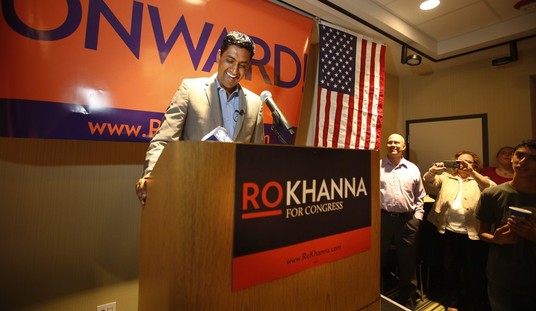Iran has spent the last two years demanding unconditional, direct talks between themselves and the US before negotiating on their pursuit of nuclear power/weapons. Now that the US has elected a President who agreed to those terms, Tehran has changed its mind. Now they claim that the differences between the two nations are too great for unconditional talks:
Since 2006, Iran’s leaders have called for direct, unconditional talks with the United States to resolve international concerns over their nuclear program. But as an American administration open to such negotiations prepares to take power, Iran’s political and military leaders are sounding suddenly wary of President-elect Barack Obama.
“People who put on a mask of friendship, but with the objective of betrayal, and who enter from the angle of negotiations without preconditions, are more dangerous,” Hossein Taeb, deputy commander of Iran’s Revolutionary Guard Corps, said Wednesday, according to the semiofficial Mehr News Agency.
“The power holders in the new American government are trying to regain their lost influence with a tactical change in their foreign diplomacy. They are shifting from a hard conflict to a soft attack,” Taeb said.
For Iran’s leaders, the only state of affairs worse than poor relations with the United States may be improved relations. The Shiite Muslim clerics who rule the country came to power after ousting Shah Mohammad Reza Pahlavi, a U.S.-backed autocrat, in their 1979 Islamic revolution. Opposition to the United States, long vilified as the “great Satan” here in Friday sermons, remains one of the main pillars of Iranian politics.
Thus dies another Bush Derangement Syndrome fallacy. Critics of the current administration here and abroad blamed Bush for not having normal relations with the Iranians. In truth, the Europeans didn’t — and don’t — want the US to have direct negotiations with the Iranians yet, because it would reduce the leverage they have on Iran as trading partners. The Iranians never wanted direct talks; they hate the US and Israel and aren’t interested in being buddies.
This is the point that Obama and his allies never seem to understand. Some people just hate us, and not because of our policies on trade and security. Iran is a nation run by radical Islamist mullahs who see secular democracy as the enemy of their religion, and Western values as a temporary heresy which they plan to correct with a global caliphate under Iranian control.
Irans’ mullahs see America as the bastion of these values, and Israel as our outpost for them in the region. Europe is mostly irrelevant to them; they can deal with Europe after eliminating the arsenal of democracy, or hobbling it so badly that we no longer make a difference. That’s why Mahmoud Ahmadinejad holds symposiums on a world without the US and Israel.
Addendum: The Iranians also claimed that they tested a long-range missile yesterday, but apparently no one else saw it:
On Wednesday, Iran test-fired a two-stage, solid-fuel rocket, Defense Minister Mostafa Mohammed Najjar announced on state television. He said the missile had a range of 1,200 miles — meaning that it could reach Israel and U.S. targets in the Middle East.
In Washington, Pentagon spokesman Bryan Whitman said that he could not “independently confirm media reports indicating an Iranian missile launch,” but added that “Iran’s missile program is a concern that poses a threat to its neighbors in the region and beyond.”
A two-stage rocket launch is hardly a secret, especially with American satellite technology. If no one can confirm it, it probably didn’t happen.







Join the conversation as a VIP Member